When we learned that dieting does not help, proper nutrition for weight loss began to arouse our interest. Dieting will not help-it is a fact. why? The answer lies in the numerous prohibitions and restrictions that are present in the modern and well-known "proven for many years" diet. Proper nutrition for weight loss should be diverse, healthy and nutritious, no matter how strange it sounds. There are several basic principles of this nutrition. There are also a bunch of misunderstandings, misjudgments, stories about magical superfoods, blacklists of "harmful foods", and stories of their wonderful recovery.

Before you start talking about nutrition, you need to understand that in recent years, more precisely, in the past 25-30 years, the balance of basic nutrients—protein, fat, and carbohydrates—has been quite biased towards carbohydrates. At the same time, you don't need to work hard and calculate too much-just go to any store and look at the window with candy. They take up almost a quarter of the store space! The first step in switching to a proper diet for weight loss will be to completely reject the sugar in the daily diet. Sounds scary, right? Do you know why? Because sugar addiction is similar to drug addiction.
-Okay, it started. . . -Someone will say disappointedly, -Ban and restrict again!
After a few minutes of attention, you will agree that quitting sugar can be a great breakthrough in improving your health, thereby reducing weight.
Of course we need carbohydrates. But which ones? We have all heard of fast and slow carbohydrates. We need to be slow. Dishes made from cereals, whole wheat flour, vegetables. . . Fruits and berries are rich in fast carbohydrates, but it is better to eat fruits and berries than to buy sweets in a pastry shop. Many nutritionists recommend resolutely and abruptly to give up carbohydrates and any kind of carbohydrates and reduce their intake to 20-50 grams per day. This drastic change from habit to usefulness can lead to dizziness, lack of energy, bad mood, and the perception that it is not so useful, but proper nutrition.
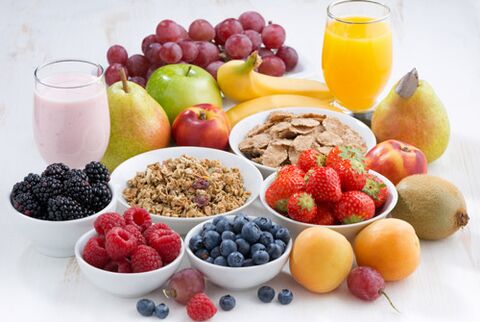
If you gradually, continuously, and do not go astray, proper weight loss nutrition will bring more benefits and happiness. But first you need to understand why our body resists any changes so stubbornly, especially the reduction in sugar content.
Sugar is indeed the scourge of our time. There is almost no teaspoon of sugar in the products provided to us by the supermarket. We are not even talking about sweets now! Juices, yogurt, marinades, sauces, semi-finished meat products, sausages and sausages, fish preserves, instant soups, instant noodles. . . the list is almost endless! Even more frightening is the imminent transition to the new nutritional principles-as a result we have almost nothing to eat!? Don't panic, there is a way out, it's still safe.
The correct nutrition for weight loss starts with three steps.
step 1:Remove sugar in pure form. Tea, coffee, sugar-free preserves. We refuse to drink preserves, jams, candies, chocolates, biscuits and other fun teas with friends or during work breaks. Ice cream, cakes, and even low-calorie marshmallows have been driven off our table! Ban all carbonated drinks. Try not to eat sugar for two weeks, just two weeks-you will be surprised. It turns out that the tea tastes different. Coffee too. Cocoa with milk but no sugar is better than any stimulant. What should be served with tea? At this stage, nuts (uncured), dried fruits, honey energy mixture (a mixture of nuts and dried fruits, lemon can be added through a meat grinder), butter sandwiches (yes, yes! ), cheese and ordinary sausages, the mostIt goes well with homemade boiled pork, caviar, light-salted salmon, etc. At the same time, breakfast, lunch or dinner should include tea containing all these good things, not a habitual snack. However, about snacks later.
The second step:When the body changes from fast carbohydrates to slow carbohydrates, it is time to eliminate foods with high glycemic index: high-quality wheat flour, white rice, and potatoes. In other words, all buns, breads, pies, peeled rice porridge, semolina porridge, as well as all kinds of nectar pies and potatoes that everyone likes, automatically turn from daily foods into delicious dishes. Yes, there are no more potatoes in the soup now. At the same time, baked products made of rye bread and whole wheat flour (without sugar, remember? ), buckwheat steamed or simply soaked overnight in water, instant oats, they blend well with fermented dairy products, and all exoticOr forgotten grains, such as spelt wheat and quinoa. In addition, you need to remove sweet fruits-bananas, grapes, and pears from your diet. Due to the high acid content, berries are not included in this list.
third step:At this stage, you should give up any carbohydrates, leaving only the natural carbohydrates in vegetables and cherries. However, sometimes the first two steps are enough to reduce weight significantly. If you meet more conditions at the same time, then you won't have to find a new diet for yourself-you will enter a whole new level, where proper nutrition comes first and for life.
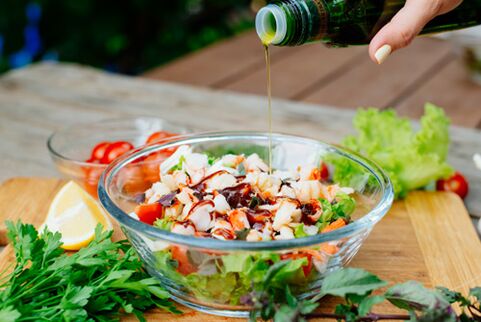
Appropriate nutrition for weight loss should be diverse.This means that the balance should include not only the notorious BJU (protein, fat, and carbohydrate), but also vitamins and trace elements. If carbohydrates provide us with energy in a pure, easy-to-obtain form, it will be more difficult for the body to obtain this energy from protein, and even more difficult for the body to obtain energy from fat. However, under normal circumstances, the hard-to-obtain is often the most useful. Calories from carbohydrates are usually too much, and our body hardly spends energy processing them, which is why "sugar calories" are so quickly incorporated into a comfortable fat volume.
Protein is very important to our body.Protein is important throughout life: in childhood it is a building material, and in adulthood it is an element that helps our body function and maintain its best condition for as long as possible. Judge for yourself: protein performs protective functions, helps produce antibodies, transports, the most famous protein hemoglobin provides oxygen to each cell, regulates-without protein, it is impossible to produce hormones normally, exercise-all types of exercise are composed of the protein myosin andActin, plastic-collagen is responsible for the condition of connective tissue, the appearance of the skin, etc. Energy-protein provides energy for the body. But perhaps one of the most important tasks of proteins is the preservation and transmission of genetic information. It is believed that the increasingly common terrible disease "Alzheimer's disease" is directly related to insufficient protein intake (not only related to it, but the second important component is lower).
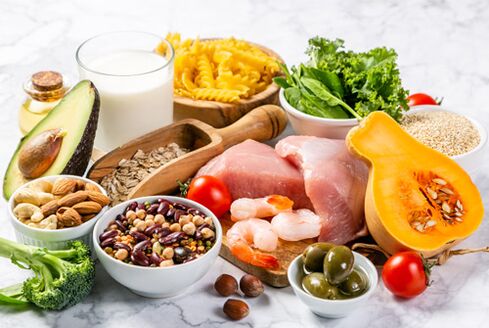
How much protein does an adult need on average? Many nutritionists, doctors, and proponents of proper nutrition comply with the protein intake guidelines deduced by German scientist Max Rubner more than a hundred years ago, which is 0. 33 grams of protein per kilogram of human body weight. Much has changed since then, and science has moved forward. Recent studies have concluded that the high average ratio per kilogram of body weight is 1. 2-2. 0 grams. The difference is impressive. In addition, the 1. 2-2. 0 grams is not the weight of the product, such as a piece of meat or a portion of beans, but the pure protein content in the product. A sample table of high-protein foods is available on our website. Our website has written about the benefits of protein products more than once, but it never hurts to repeat these common truths.
Although vegetarian, raw food and vegetarian food are very popular, we still need at least 50% animal protein to keep our bodies healthy, not in a state of survival. These are eggs, dairy products, fish and seafood, meat and offal. Unlike plant foods, it is these proteins that have a complete set of amino acids. Although they must be eaten, just because diversity is the essence of proper nutrition!
Obviously, very few products on our planet consist of any kind of substance. Almost any food is a combination of protein, carbohydrate and fat. Here, the last ingredient-fat-happened, perhaps the biggest crime story in the history of nutritional science. At a "perfect" moment, fat was declared the enemy of health. Everyone has heard horror stories about cholesterol, blood vessel plaque and other horrible events. Looking at how stores supplement their varieties with low-fat or completely low-fat products at an enviable speed, you begin to doubt the sincere desire to provide us with "correct", "healthy" and "live" food, because there is nothingIt is correct and useful when there is no fat in the diet.
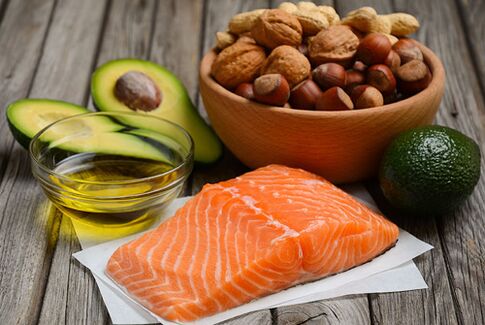
So what is the role of fat in our body? You would say-help absorb fat-soluble vitamins. this is all? From the biology class of student days, some people will remember the heat exchange function of fat. Therefore, the most important function of fat in the human body is surface metabolism. In simple terms, it is to ensure the exchange of oxygen in the alveoli. Fat is arranged in the thinnest layer on the alveolar wall, allowing us to breathe and. . . live. My grandmother's method of treating lung disease immediately came to mind: badger fat, dog fat, goose fat, hot milk and butter-fat everywhere, inside and out, it helps! And, by the way, it's still helpful. It's just a medicine to treat hypoxia (hypoxia). What is sold wildly now is actually fat emulsion. Another important role of fat is to synthesize membranes. The cell membrane is composed of 70-85% fat. The function of the membrane is to ensure the protection of the cells, their insulation and selective penetration (because not all substances trying to enter the cell are useful and necessary). The myelin sheath is the insulating sheath of our nerves and contains 70-80% saturated fat. Without myelin sheath-suffering from Alzheimer's disease, old (much younger) sclerosis and dementia. Fat is one of the most important substances that make up the membrane, myelin sheath, ensure its work, and the function of the central and peripheral nervous system. Keep this in mind when choosing 0. 5% to 3. 2% fat milk.
Another important function of fat is hormones. Fat is the source of synthetic hormones, and we have a lot of fat in our body. They are growth hormone, protein hormone, thyroid hormone, digestive system hormone, steroid hormone, adrenal hormone, sex hormone, etc. Obviously, with the slightest prejudice, any insufficient production of hormones will cause tremendous damage to the work of the entire organism. The sudden onset of blackheads and acne, various skin rashes are signs of low androgen levels. Frequent headaches "for no reason" may be a sign of low estrogen levels. Persistent insomnia-not enough progesterone. Fatigue, exhaustion, and even exhaustion at rest, this may be a sign of disturbed thyroid hormone secretion. Hair loss is also a sign of this disease. Weight gain may be due to high levels of estrogen, cortisol, and insulin, combined with low testosterone levels. Forgetfulness and distraction are indicators of low levels of estrogen and cortisol. How everything is connected!
Fat is responsible for calorie regulation. This is why men who do not diet are usually hotter than women who always lose weight. Frozen hands and feet are likely to be a sign of fat deficiency, if not for some congenital particularity. The most famous function of fat is to dissolve and help absorb fat-soluble vitamins: A, E, D, K. Stick to a low-fat diet and drink multivitamins-this is not an option, vitamins will not be absorbed at all.
Finally, last but not least-vitamins, minerals, macros and trace elements. These substances are present in different amounts and combinations in all products, but special attention should be paid to fresh vegetables, rhizomes, fruits and berries. One of the most valuable vitamins-vitamin C-is not synthesized in our body, we can only obtain it from fresh plant products. Our website is filled with the entire section about vitamins, read it, it is very useful! Plant foods contain enzymes and flavonoids, as well as various minerals, without which we cannot function normally. For example, potassium-without it the work of the heart will be disrupted. Magnesium is responsible for the health of the brain, nerves and hormonal system, and is involved in metabolic processes. And there is fiber in plant products-without it, the process of digestion and peristalsis is almost impossible!
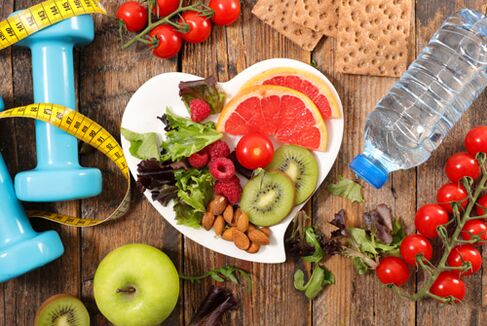
Proper weight loss and improvement of body nutrition include the following principles:
Eat no more than 3 times a day. Didn't expect it? But what about the 5-6 meals a day advertised in many recommendations? This kind of meal sharing is very suitable for children, athletes and seriously ill citizens. If you do not fall into any of these categories, please eat three or even two meals a day.
Eat only when you are hungry, not at night. Breakfast is optional! If you do not want to eat in the morning, please reschedule your breakfast in a few hours. Don't stuff food into your stomach just because someone says breakfast is the most important thing.
Learn to listen to your own voice and understand the difference between hunger and the habit of mixing things together. The following suggestions will help.
Drink water. It is not in units of promotion, because it is sometimes recommended. Never cooked. Ideal for bottled or spring. The way to drink water is simple: drink 2 cups of warm water in the morning (not cold or boiled), 1-2 cups during the day, and 1 cup at night. Sometimes drinking water is enough to understand that this is just thirst, not hunger.
Get in the habit of buying various nuts and seeds more frequently. In addition to fat, they also contain a lot of macro and trace elements.
Eat whole foods. In other words, it is not fat-free! White cheese-9% fat, not less than, but with sour cream, creamy coffee, butter sandwiches, high-fat cheese, high-fat sea fish, exotic avocados, bacon! This is not a typical "fire to fire" deviation. Of course, everything needs a measure.
Don't forget protein! But it is also important to combine it with what. And this suggestion will be the last one.
eat vegetable. Lots of vegetables and herbs. Fresh, pickled, marinated, steamed, boiled and even fried! But fresh salads are certainly preferable. Counting the number of vegetables is not difficult: Divide your plate into two parts in your heart—one half is vegetables, and the second part is protein, fat, and the same minimum carbohydrates.
Proper nutrition for weight loss is not strictly a table or recipe. This is a deliberate approach. All of these techniques are only effective when almost completely rejecting carbohydrates. If you mix protein and carbohydrates (mashed potatoes and meatloaf) or fat and carbohydrates (bacon and bread) in one plate, you are done. To be more precise, no, of course, you will not die immediately. You will continue to live, sighing bad luck and complaining about injustice for every additional kilogram ("I really sit on the same piece of water, where does the fat come from?? "). No need to sit on the water, no need to torture yourself with hungry food products. Just start with three steps, walk without turning, healthy and beautiful.














































































